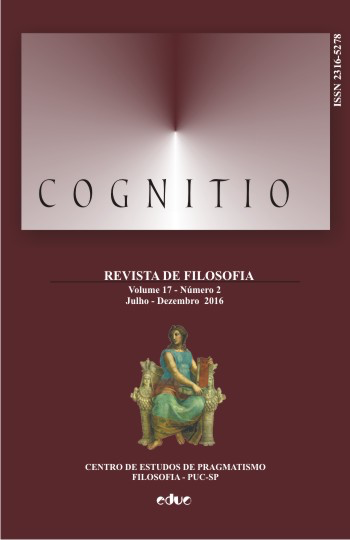Peirce, conhecimento perfeito e o problema de Gettier
Palavras-chave:
Conhecimento perfeito, Condição de Peirce, Condição de Siger, Extensibilidade, Evidência conclusivaResumo
C.S. Peirce caracterizou o “conhecimento perfeito” como uma opinião “definitivamente formada” e, assim, não podendo ser prejudicada por investigações futuras. O “conhecimento perfeito” de Peirce é um conceito avançado, portanto o conhecimento genuíno (perfeito) é extensível e requer a capacidade de defender a alegação do conhecimento contra objeções. Tais alegações de conhecimento não são vulneráveis a contra-exemplos do tipo Gettier. A condição de Peirce para conhecimento perfeito pode ser atendida mesmo que o investigador careça de justificativa “interna”, ou seja baseado em algumas proposições evidenciais falsas. Resultados experimentais incorretos suficientemente próximos à verdade podem, ocasionalmente, justificar conclusões verdadeiras.Métricas
Carregando Métricas ...
Downloads
Publicado
2017-02-04
Como Citar
Hilpinen, R. (2017). Peirce, conhecimento perfeito e o problema de Gettier. Cognitio: Revista De Filosofia, 17(2), 303–312. Recuperado de https://revistas.pucsp.br/index.php/cognitiofilosofia/article/view/31236
Edição
Seção
Artigos Cognitio









